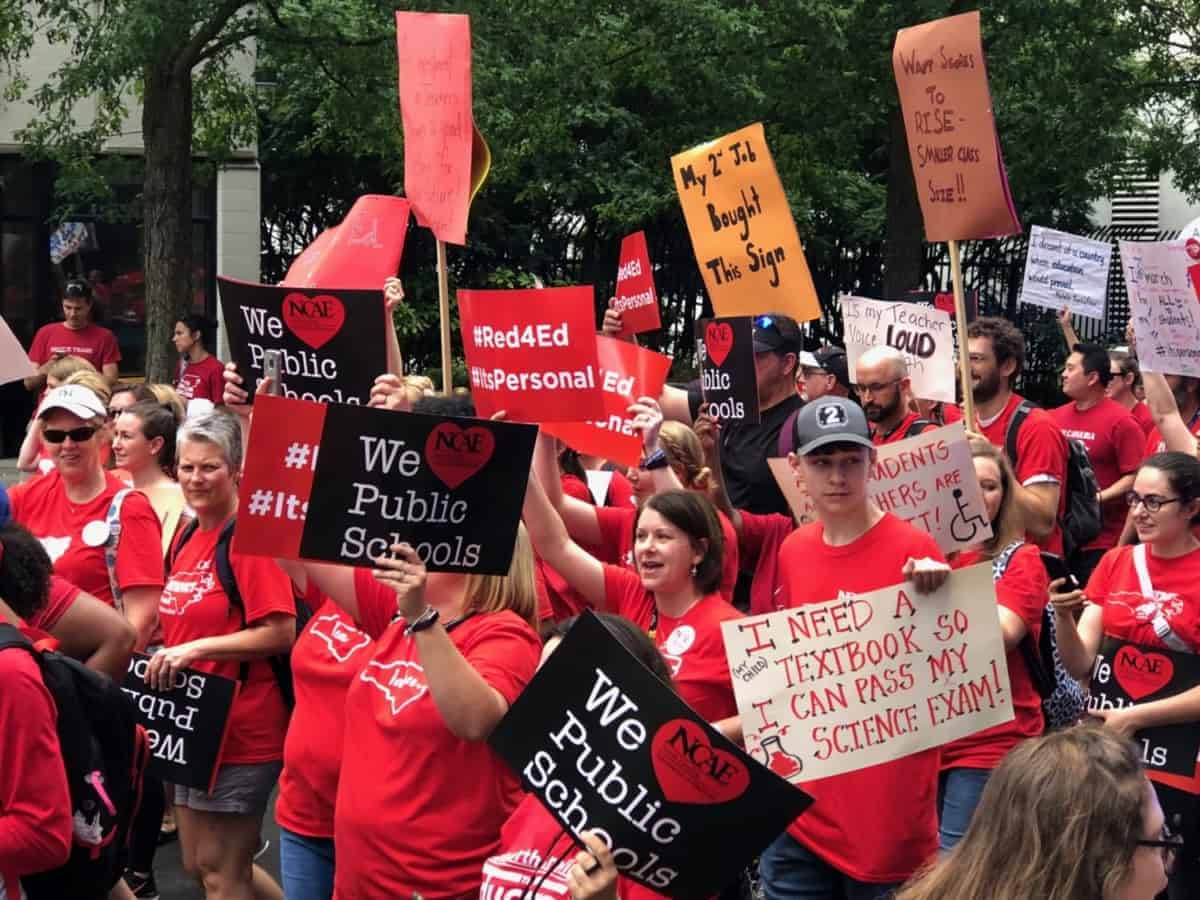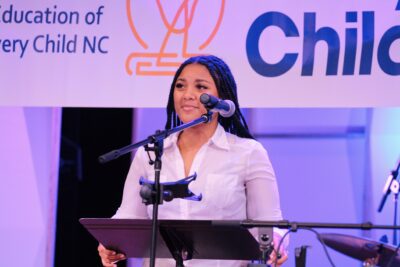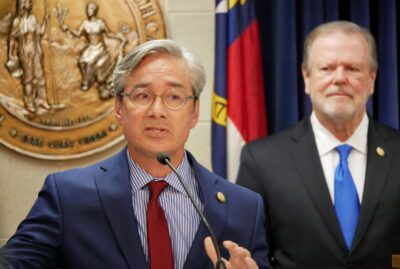
Share this story
- State leaders and members of the public have recently raised concerns about pending education legislation, like voucher expansion and the bill named "The Parents' Bill of Rights." Here is a look at those concerns.
- “Please consider the impact that the expansion of this program will have on our public schools across the state,” State Board of Education Chair Eric Davis wrote regarding the voucher proposal, “and do not move forward with this expansion.”
|
|
State Board of Education Chair Eric Davis and Vice-Chair Alan Duncan recently wrote to Republican lawmakers regarding concerns with the process outlined for resolving parental concerns in Senate Bill 49, known as “The Parents’ Bill of Rights.”
“While the bill contains some provisions that will help parents understand their rights and be better able to advocate for their children,” the letter says, “the bill also contains some provisions that are problematic.”
The controversial bill, which passed the Senate on party lines in February and the House on Wednesday, seeks to “enumerate the rights of parents to direct the upbringing, education, health care, and mental health of their minor children.” It now must go back to the Senate for a final vote.
Sign up for the EdWeekly, a Friday roundup of the most important education news of the week.
While most Republicans and Democrats agree that the bill outlines rights parents already have, Republican bill sponsors says the bill safeguards the integral role of parents in their children’s lives. Opponents, including many educators, say the bill will damage the relationship between educators and students, while also threatening the safety of LGBTQ+ students.
The bill would ban curriculum on gender identity, sexual activity, or sexuality in kindergarten through fourth grade. It would also require schools to notify a parent about their child’s physical and mental health, including any school health care services they use, changes to their well-being, or requests to change a student’s pronouns.
The bill only lists a few additional rights that parents don’t already have, EdNC previously reported. Those additional rights include knowing the library books your child checks out, allowing parents to review all curriculum, and establishing remedies and timelines for parental concerns.
That last right is where the State Board of Education has concerns, according to Davis and Duncan.
Under the provision for remedying parent concerns, the bill mandates that school governing bodies adopt procedures for parents to notify principals regarding concerns about curriculum. A process to resolve concerns should take place within seven days of the date of notification by the parent, the bills says.
After 30 days, “the public school unit shall provide a statement of the reasons for not resolving the concern.” At that point, parents can also request a “parental concerning hearing” with the State Board of Education.
“The concern from the State Board’s perspective is that this process does not provide the State Board with any authority to enforce a decision that it might make with regard to a proposed solution to the concerns,” the letter reads. “To make an appeal hearing decision meaningful under the terms of the bill would require authorizing the State Board to encroach upon the PSUs authority, undermining NC’s traditional approach to local control over these matter.”
As currently written, the hearings “will likely be a frustrating exercise in futility for all involved,” the letter says, and a “significant expenditure of resources.” The letter also raises concern with the lack of funding to school districts for the hearing officers outlines in the bill.
The hearing must happen at the district or charter school level, the letter says, not the State Board of Education.
“This will allow the district boards of education and charter school boards that are the subject of parental concerns, to deal with those concerns directly and have the parties work on fashioning effective remedies,” Davis and Duncan said. “We would be glad to discuss with you such a local approach to achieve a better outcome.”
You can read the full letter here.
Other concerns with education legislation
The Republican-led legislature has introduced multiple bills this long session expanding school choice through private schools and charters, which are public schools with more flexibility. As EdNC has previously reported, traditional public schools remain the top choice for most of the state’s students.
Earlier this month, Davis published another letter raising concerns about some of those legislative proposals, including the proposed expansion of the Opportunity Scholarships program.
The Republican-led Senate released its budget proposal last month, which included more in recurring funding to expand private school vouchers through the Opportunity Scholarship Grant Program over the biennium than it would add to implementing its proposed teacher salary schedule, by about $27 million. The budget proposal also removes all income eligibility requirements for recipients, starting with the 2024-25 school year.
Opponents have highlighted the lack of accountability for private schools, which don’t have the same testing and reporting requirements as public schools.
A new analysis from the N.C. Justice Center also shows a lack of accountability concerning the vouchers themselves – finding 62 instances of N.C. private schools having more vouchers than students. The report also highlighted that 449 vouchers – totaling $1.7 million – were awarded to schools that failed to report enrollment data.
“What is clear is that there is inadequate oversight of the Opportunity Scholarship voucher program,” that report says. “These issues will only get worse if lawmakers triple the program’s size. Lawmakers need to pause their expansion plans until they can figure out what’s going on.”
WFAE reporter Ann Doss Helms went looking for one of the Charlotte private schools with a discrepancy.
The biggest voucher-enrollment gap in Mecklenburg County is at Teaching Achieving Students Academy, she reported, which had 13 students in 2021-22. The school was listed as having 22 scholarship recipients, bringing the school $92,400 from the state.
She couldn’t find the school – even after an email and call to the school’s headmistress, many Google searches, and searching the 2021-22 private school directory.
Update: Rep. @JohnTorbett‘s office says legislative fiscal staff confirm discrepancies between enrollment & vouchers; looking into details and explanations. And someone has steered me to yet a fourth possible address for the elusive TSA Academy.https://t.co/dYjSnuZ3NW pic.twitter.com/WCyjl4VJ99
— Ann Doss Helms (@anndosshelms) June 26, 2023
Doss also reported that the N.C. State Education Assistance Authority — which administers the vouchers — confirmed that one of the private schools identified in the Justice Center’s report “had been declared ineligible for vouchers and referred to the State Bureau of Investigation.”
In his letter to lawmakers, Davis also raised concerns with the lack of accountability at private schools. The State Board has heard concerns about the proposed expansion from superintendents in each of the state’s eight regions, he said.
“Please consider the impact that the expansion of this program will have on our public schools across the state,” he said, “and do not move forward with this expansion.”
You can read EdNC’s report on the more than 100 education-related bills that made crossover here.
Recommended reading




